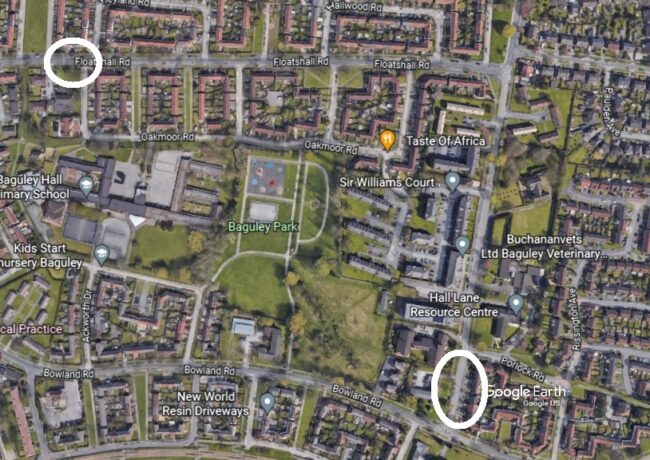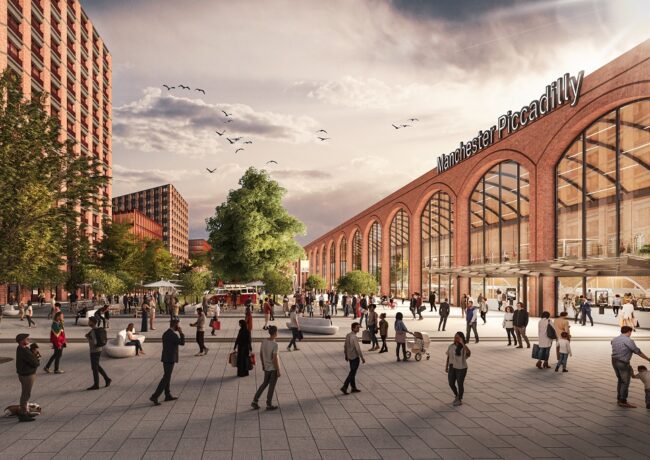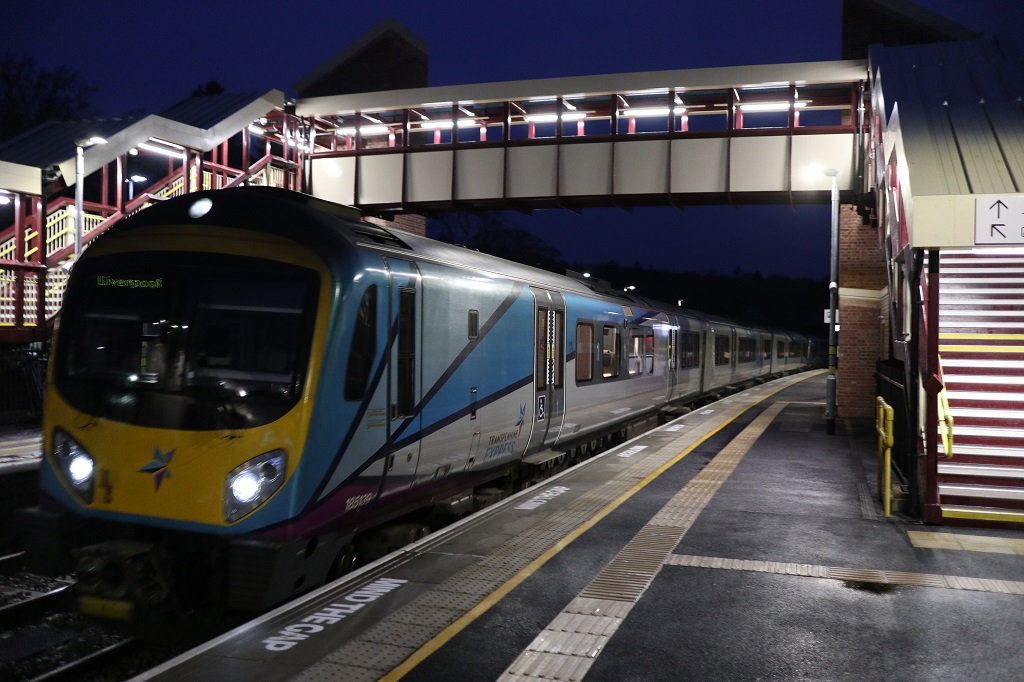Manchester withdraws Wythenshawe Active Travel Scheme plan
Citing “strong feedback from local residents”, the council has withdrawn proposals to use £1.5m from the government’s Active Travel Fund to introduce two bus gates near Baguley Park.
Bus gates are stretches of road that are only open to buses, black cabs and bicycles. The proposed bus gates would have been located at Floatshall Road and Hall Lane.
Originally, Manchester had aimed to create a cycling and walking route connecting Chorlton Park to Manchester Airport via Simonsway, Wythenshawe Hospital, and Wythenshawe Park. A consultation on that proposal had concluded in May last year.
A council spokesperson said that they had received “a lot of useful feedback” from that consultation, but that the specific criteria for spending the Active Travel Fund money had meant another consultation was necessary.
“The most recent consultation focused on one area, which would reduce traffic and make walking and cycling in that neighbourhood more attractive”, the spokesperson said.
Feedback on the new plan had been robust, with the council receiving nearly 600 responses. On Twitter, the council said that residents were concerned that the bus gates would not, in fact, make walking and cycling easier in the area.
“The consultation process has now been paused while the proposals are reviewed in line with feedback we have received from local people – and consider how we can best invest our limited funding to encourage more people to choose walking and cycling,” the council spokesperson said.
“However, the council continues to have ambitious plans to invest in walking and cycling routes in Wythenshawe and we are currently exploring options ways to do this.”





Cowards
By CJ
A crazy waste of money, thank heavens for the good sense showed by the residents of Baguley, we don’t need idiotic councilors dictating how people travel.
By Steve
In what way cowards? Would have split communities in half and endangered vulnerable people reliant on others .
By DC
Manchester Highways need to get a grip and commit to the future of transport, following the mode share ambitions within their own and TfGMs plans, as well as their carbon commitments. They’ve messed up every active travel scheme going by listening to the angry minority. Imagine if road
or airport schemes were cancelled because a few people object. See how every quality bike lane in Trafford and Salford ends at the Manchester boundary. Embarrassing when you see the ambition of Newcastle, Birmingham, Cambridge, Brighton, Bristol and others.
By A Tale of Two Cities
In response to Tale of Two Cities, Trafford’s ambitious cycle Lane, is half of Chester Road cordoned off with bollards, causing nothing but inconvenience. Flourishing cities need people to get to work quickly, not crawling along at two miles an hour in one Lane, so some solitary cyclist can have half the road to him or herself. Greater Manchester is losing nearly 9 billion pounds a year in productivity because of inadequate transport provision and this ludicrous obsession with unused cycle lanes. That is the second biggest city economy in the country, underperforming at that level because it takes twice as long to get to the centre, as it does for people in equivalent European cities.
By Elephant
Yes…..What Elephant said!
By Anonymous
The right decision. Unless it’s done correctly all you do is alienate whole sections of the community for some half thought out ESG obsessed minority view. Sure the Greens will pull their hair out but in a democracy we all get a say….sometimes.
By Anonymous
Elephant – traffic was bad on Chester Road before the cycle lanes as well. You’re right that congestion causes productivity issues in cities, but congestion is caused by too many cars. The idea behind promoting active travel is to make it more convenient and safe for people to choose travel options other than the car for some or all of their journeys. This makes the roads more efficient, enabling them to carry more people and reduce congestion for those that need to drive – thereby increasing productivity.
Chester Road cycle lanes aren’t perfect I agree. Cities like Amsterdam have cycle lanes on every road and much less space allocated to cars: and yet it’s not a very congested city, but is also one of the world’s most productive.
Compare with cities like LA or Coventry where cars are king but liveability and productivity is low.
By Anonymous
Another example of how piecemeal the active travel strategy is across GM with boroughs moving at different speeds and capability, with MCC not covering itself in glory right now, same with the CAZ. Bev Craig and Andy Burnham needs to grab this, sad to say big cities like Birmingham and Leeds are doing a better job. When was the last time we played second fiddle to those places?
By Rich X
Anonymous. The cycle Lane on Chester road isn’t even a proper cycle Lane, it is just a closed, empty lane, which causes stress and road rage.Amsterdam has outstanding public transport. Build Amsterdam’s transport infrastructure and then install the cycle lanes. This country does everything on the cheap. Cycle lanes are cheaper than tramlines.
By Elephant
I agree with Elephant’s comments. The cycle lane on Chester Road creates congestion and is hardly used. It seems plain wrong to create congestion in the hope that that will drive people to cycle more. Planning is required to change habits. We are too fond, in this country, of throwing down lines of cones in anticipation of an event which may never happen. No more cones or cordons without a thought through plan please.
By Anonymous
We so often half do things in this country. This was half baked , better than not baked at all some might say . I’d disagree do it well or don’t do it at all
By Anonymous
Why do people insist to use a 1.3T (Minimum weight) vehicle, suitable to carry 5 people and their luggage as a solution to move, on average, a person weighing between 50-100kg with a bag weighing <7kg.
All the maths is there, size of vehicle, travel time, speeds, running costs. A traditional car will never be the most efficient mode of transport for the majority of journeys taken.
Even with all the data and arguments people will not accept that they are the traffic and driving a car makes them the problem. Not the road or the planning.
They'll continue everyday to sit there in traffic whingeing about the traffic that they themselves are contributing to every single day and do nothing about it.
By John Terry